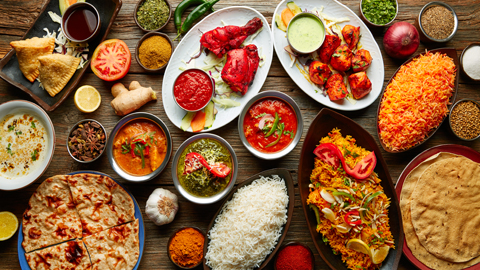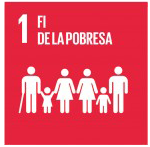New project aims to reuse excess meals from the Plaça Cívica and Faculty of Medicine restaurants
Starting on 7 October the UAB will begin a pilot test at the Plaça Cívica and Faculty of Medicine restaurants to put unsold meals to good use by redistributing them to social entities in nearby areas under the framework of the project Recooperem, cuina per compartir, coordinated by the Vallès Occidental County Council.

Recovering meals not sold at the UAB will be possible thanks to a packaging, labelling and freezing process to prevent them from becoming waste.
As part of the UAB's commitment to prevent food waste and its strategy focused on climate neutrality, the Restaurant Service and Sustainability Office of the UAB, in collaboration with the Vallès Occidental County Council, launch an initiative entitled “Recooperem, cuina per compartir”, aimed at reusing unsold meals.
In this pilot test, meals cooked at the Plaça Cívica and Faculty of Medicine restaurants and not sold will be packaged, labelled and frozen so as to prevent them from becoming food waste. The project will be conducted with the help of a software platform designed to gather data on the traceability of the food from the production centre to its distribution and final place of consumption. It also allows incorporating new technologies in the reuse centres and participating entities, thus creating a digital circuit of information gathering, control, monitoring and evaluation of the entire process.
On Friday 4 October a training session was held for all staff members of the UAB cafés and restaurants participating in this project to inform them of how this new circuit works. All necessary equipment (tablets, thermal label printers, etc.) for the project will be installed during the week of 7 October.
The project aims to reduce food waste (particularly in the school sector) by providing support to projects in favour of social inclusion of groups that are socially or economically at risk, reduce the environmental impact in general of the food production and consumption chain, favour collabroations among different social agents, generate local food distribution circuits and foster circular economy.
What is food waste?
Food waste includes items that, although safe and healthy for people to eat, must be discarded or put to other uses instead of becoming food for persons or animals, and can be found throughout the entire food chain.
In Catalonia alone, an average of 35 kg are wasted per year, and an average of 95 kg per person in Europe (ARC, 2012). According to the UN's FAO, one third of foods produced annually is discarded. This food waste entails environmental, economic and social costs; it is responsible for 8% to 10% of global greenhouse emissions. For this reason, the law on food loss and waste prevention (Llei de prevenció de les pèrdues i el malbaratament alimentaris), passed in 2020 by the Catalan Government, proposes reducing food waste by 50% by 2030.
The UAB committed to preventing food waste
The UAB is committed to contributing to the prevention of food waste, as stated in its Climate Policy, which aims to reach climate neutrality by 2030. The university is also a pioneer institution in the fight against food waste and has led studies and publications conducted both by the UAB and regionally in collaboration with other administrations.
Recently, under the framework of the Healthy and Sustainable Campus 2023-27, the UAB has organised workshops and activities to raise awareness on the importance of reducing food waste and a responsible food consumption.
In addition, the ICTA-UAB participates in an awareness-raising project in schools to teach about food waste, launched by the Hub b30, in collaboration with the Vallès Occidental County Council. Also as part of this strategy, the second edition of the Science Carriage, dedicated to fossil fuels, includes an interview section with information of food waste.
The UAB, with Sustainable Development Goals
Reduced inequalities
 No poverty
No povertyZero hunger
Responsible consumption and production
Sustainable cities and communities
Climate action